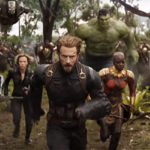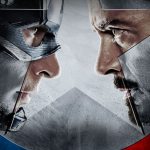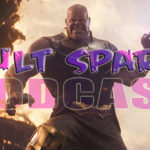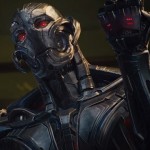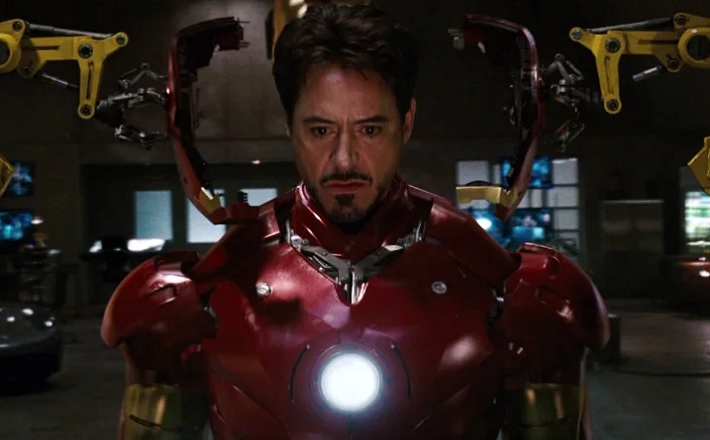
Way back in 2012, right before the first Avengers came out and with Iron Man 3 still a year away from release, a reporter asked Marvel Studios super-producer Kevin Feige what the studio will do once their lead actors depart or age out of their roles. This was Feige's answer …
"Let's put it this way: I hope Downey makes a lot of movies for us as Stark. If and when he doesn't, and I'm still here making these movies, we don't take him to Afghanistan and have him wounded again. I think we James Bond it."
While Feige admitted in a later remark that he didn't have a problem with the characters aging along with the actors for a while, he also clearly stated that eventually they'd have to go the Bond/Batman route and just recast the part without rebooting the universe. It seems pretty obvious that the original plan for when Robert Downey Jr. got too old or Chris Evans wanted to move onto other things was that Marvel would just sub in new actors for those roles, much the same way they did for James Rhodes/War Machine when Terrence Howard bolted after Iron Man or for Bruce Banner when Edward Norton skipped out after The Incredible Hulk.
So what changed? Because after seeing Avengers: Endgame — which you better do before you read any further into this article — it's clear that Feige and Marvel ultimately decided that Downey, Evans and Scarlett Johansson were in fact irreplaceable. Those parts could not be played by anyone else, and if any of the original Avengers were going to bolt for whatever reason down the line, then their character would be permanently retired within the MCU, either via death or a pleasant, time-travel-assisted retirement (one upcoming Black Widow prequel notwithstanding). What changed is I think it started to dawn on Feige just how beloved this specific group of actors playing these characters had become. Back in 2008, when folks scoffed at Marvel for trying to turn a C-level comic-book character into a blockbuster movie, my guess is The Powers That Be at the studio still considered the characters (or the genre at large) to be the draw, not the actors. Don't forget that Downey could barely get a job at that point. Casual movie-goers would be more likely to see him in a tabloid newspaper than on a movie screen. Evans was only known for teen movies and two bad Fantastic Four films. Chris Hemsworth was a nobody. Of course you'd just replace these guys if they moved on from the franchise or if their take on their character wasn't working out!
But instead something unexpected and damn near magical happened: When it came to casting, Marvel kept hitting home run after home run after home run after home run. Somehow, Feige, his directors and the wizards at Marvel casting have been able to choose what seems like the perfect person for every new character they launch, regardless of whether they go with an established actor or someone largely unknown to general audiences. Just try to imagine anyone other than Downey pulling off Stark's blend of smug assuredness and rich-guy guilt. Who but Evans could embody the chivalrous nobility that courses through Steve Rogers? Even better, Marvel has been smart enough to lean into their actors' hidden strengths as they become more apparent, altering the character to better fit the person playing him or her. Just look at how Hemsworth's impeccable comic timing has resulted in Thor morphing from a high-fantasy archetype into the universe's most delightful dude-bro. Even past the original Avengers, nabbing folks like Tom Holland and Benedict Cumberbatch and Paul Rudd ended up seeming like the absolute optimal choice. (Yeah, I know I just listed three men. I wish I could add Brie Larson to this list. I'm just personally not sold there yet, although the Captain Marvel box office proves that what I think doesn't matter. I will add that I think hiring Zoe Saldana and Tilda Swinton are two of the best casting decisions Marvel has ever made.)
At some point after he gave that quote it must have dawned on Feige that the James Bond method was never going to work here. Throughout nine movies, Downey so perfectly embodied Iron Man that, to audiences, the actor and character would become inseparable. Same thing for Evans. Same thing for pretty much everybody. The movies and the characters became too beloved to pull any more Norton-for-Ruffalo-type switcheroos. Yet Marvel was still inevitably going to start losing actors at some point. Feige and company must have decided that since they can't recast these parts, they may as well write definitive endings for the characters.
Which brings us to Avengers: Endgame, a movie that really does feel like the grand finale to a 22-movie series rather than just another cog in a media franchise that will likely continue on for decades. Had Marvel not so perfectly cast these roles, we'd probably be in a James Bond situation where this summer's Avengers movie was fine but lacked the poignancy and emotional wallop that the film we got ended up packing. And we'd likely be staring down the barrel of an Iron Man 4 starring Robert Pattinson.
It seems to me it's easy to argue that the way things worked out was for the better. Certainly for movie lovers and comic-book fans, if not for long-term Disney shareholders. I grew up reading Marvel comics. Watching that universe get brought to life — and then resolve itself — so exquisitely on the big screen over the past 11 years has been a nerd-dream come true. Had Marvel just recast Tony and Steve and we all kept dutifully going to the theater for another 11 years as diminishing returns set in, that dream likely would have been considerably tarnished. Yes, the Marvel Cinematic Universe will continue on, and I will no doubt be excited for some of the movies still to come. But it will never quite be the same. And, hey, that's okay. It's often the endings of stories that give them their power. Tony and Steve got their endings, for which you have their actors — and the people smart enough to cast them — to thank.

